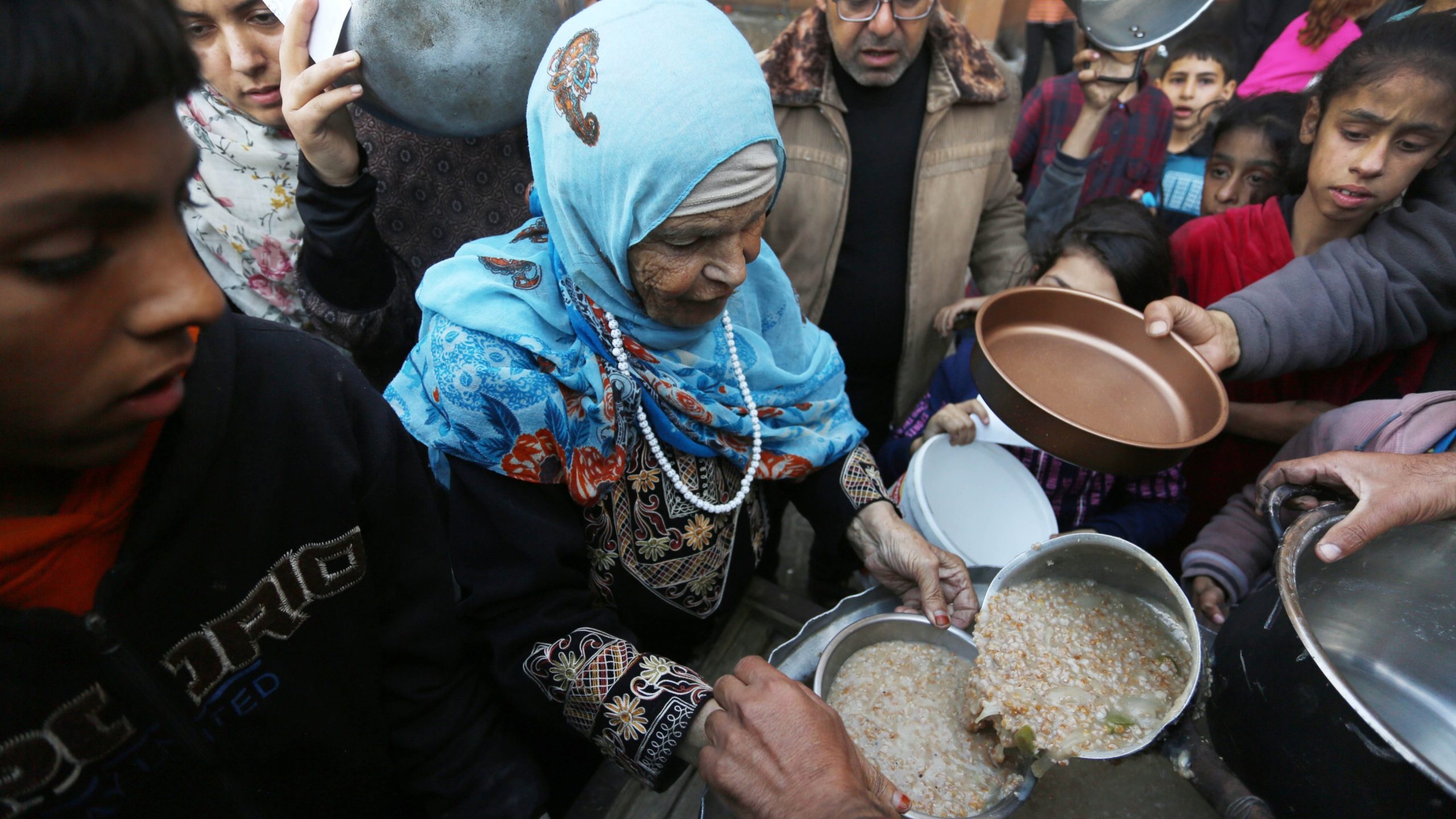The United Nations Relief and Works Agency (UNRWA) warned once again on Thursday, December 28 that “Gaza is grappling with catastrophic hunger” and at least 40% of its population is at “the risk of famine.” Despite the UN Security Council resolution adopted last week, not enough aid is entering the besieged territory, the agency added.
After failing to convince the US to vote for a resolution demanding immediate ceasefire and to avoid its veto, the UN Security Council agreed for a watered-down version of the resolution demanding increased humanitarian assistance to the people in Gaza on December 22.
However, aid organizations find it difficult to increase the delivery of aid as there is no cessation of Israeli bombings which continue to target humanitarian staff, shelters, and agencies.
Israel has imposed a complete siege on the Palestinian territory blocking supplies of food, medicine, fuel and other essential materials since the early days of the war. Only after global intervention did it allow a limited supply of aid through Egypt’s Rafah border in November. However, the number of trucks with aid entering Gaza remains highly inadequate to fulfill the needs of over two million Palestinians.
The speed at which the aid is flowing is also very slow and uncertain as Israel insists on having control over the passage of trucks, finding one reason or the other to halt their movement.
UNRWA called for an immediate humanitarian ceasefire as “the only remaining hope” for 2.3 million Palestinians forced into a humanitarian crisis due to the Israeli war that has been raging on for almost three months now.
UNRWA also claimed that the amount of food it is able to distribute among the people taking shelter in its temporary camps is not enough to meet the needs of all the people. It claimed that the number of people currently taking shelter in most of its camps is at least four times more than the capacity.
Thomas White, the director of UNRWA’s Gaza affairs, has repeatedly stated that, “everyday is a struggle [for most Gazans] for survival, finding food and finding water.” He has also said that due to lack of fuel and Israeli bombardments it is difficult to deliver whatever aid is reaching Gaza to the needy.
Most Gazans are now displaced and forced to take shelter in over 300 UNRWA camps, after their homes have been destroyed due to indiscriminate bombings carried out by invading Israeli forces and by air strikes since October 7.
More than 21,300 Palestinians have been killed and over 55,000 have been wounded in the Israeli air and ground offensives in Gaza since October 7. According to UNRWA, nearly 90% of Palestinians in Gaza are displaced.
Starvation and diseases spread in Gaza
Another UN agency, the World Food Program (WFP), has already warned last week that the entire population of Gaza is in “crisis or worse levels of acute food insecurity.” According to its new Integrated Food Security Phase Classification (IPC) report released last week, at least 26% of all Gazans, around 576,000 people, “have exhausted their food supplies and coping capacities and face catastrophic hunger (IPC Phase 5) and starvation.”
The health situation in the occupied Palestinian territory of Gaza is also deteriorating every day. According to Martin Griffiths, the UN undersecretary of humanitarian affairs, “Gaza is a public health disaster in the making.” He has tweeted how most of the hospitals in Gaza are shut and those remaining are barely functioning which makes hundreds of people with war injuries unable to receive necessary care.
Griffiths also warned that infectious diseases are “rife and spreading fast in overcrowded shelters.”
According to UNRWA, 400 Palestinians are forced to share one toilet and there are not enough sanitation services left in Gaza due to Israeli bombings.
UNRWA has noted that the number of Palestinians forced to live in small territory in southern Gaza has multiplied since October 7. Israel continues to force thousands of Gazans to move south every day which makes it very difficult to manage both the health needs and proper aid delivery.
Responding to the worsening humanitarian situation in Gaza, World Health Organization (WHO) head, Tedros Adhanom Ghebreyesus said in a post on X that, “Peril, ill-health, hunger, thirst, lack of shelter” have become norms for millions of people in Gaza. He demanded that the UN resolution talking about increased humanitarian assistance to Gaza should be implemented as soon as possible as people in Gaza today need “actions, not words.”
Ghebreyesus however noted that what people of Gaza need the most now is the immediate ceasefire.





